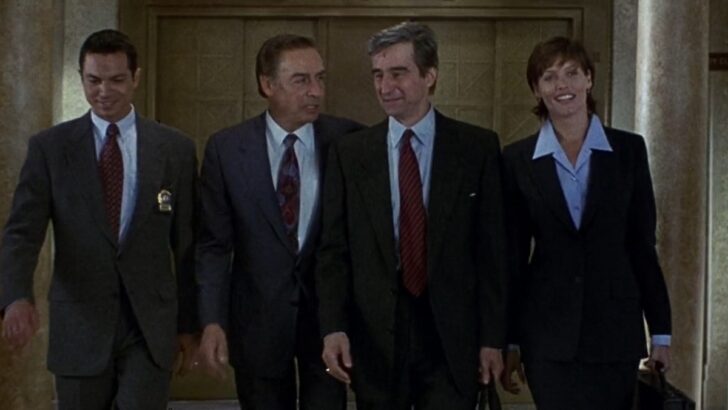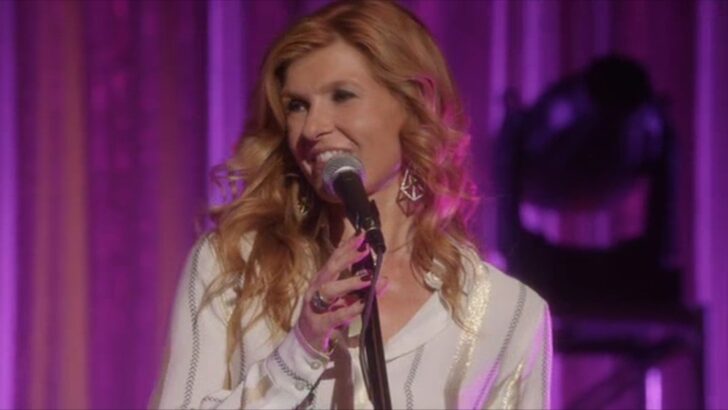With The Summer I Turned Pretty winding down, three seasons of beachy nostalgia, love triangles, and teen angst are almost behind us.
The show has become a cultural phenomenon, cementing its place among iconic teen dramas.
But as someone who’s followed it closely, I still can’t wrap my head around one thing: the hatred for Jeremiah Fisher.
Somehow, Jeremiah has emerged as one of the most polarizing figures in the series.
While Conrad sits on a pedestal, Jeremiah becomes the punching bag of the fandom — every action scrutinized, every emotion misread. And honestly? It’s baffling.
It’s probably shipping culture that results in making villains out of flawed, messy young adults just trying to get through life.
While Belly may be the lead, it’s always been the Fisher brothers who’ve fascinated me. Both are deeply relatable in their own ways, which is why the stark contrast in how fans treat them is so striking, and I could never truly hate either character.
But while no one ever has to explain why Conrad could be an endearing character, it seems difficult for many to grasp why Jeremiah could be likable, especially outside of his placement in a love triangle.
Because here’s the thing: The Summer I Turned Pretty was never about one brother being “good” and the other “bad.”

Conrad and Jeremiah are foils — two sides of the same coin. A perfect way of exploring conflict, however melodramatic.
Yet, fandom culture, obsessed with binaries, can’t seem to accept both as valid, likable, or loathable in equal measure. Instead, loving Conrad often requires hating Jeremiah — a false dichotomy that strips the story of its nuance.
It’s boring, and, frankly, elementary, my dears. People are so much more complex than that — and so are characters.
For example, one of the most common criticisms of Jeremiah is that he “doesn’t take accountability,” especially compared to Conrad. However, that’s a shallow reading when we consider that accountability looks different for each of them.
To me, it’s always clear that Conrad knows he struggles to communicate, so when he does apologize, his words carry some weight precisely because he doesn’t use them often.

Whereas Jeremiah is constantly verbalizing. For him, doubling down on accountability means taking action to prove something. But it’s fascinating to see how only one way ever “counts.”
Instead, for Jeremiah, specifically, it results in bad-faith interpretation and critique.
Watching teen shows always brings out a sense of nostalgia.
As a Black millennial, I’m accustomed to watching things about situations that aren’t familiar to me or people who don’t exactly look like me, but still connecting and relating to them in ways that aren’t so literal despite that.
That’s why conversations with a fellow fan (the one who inspires me to write about the series at all) are always so illuminating. As another WOC, we found it interesting to see the diversity of the demographic of fans who like Jeremiah, or hell, just don’t hate him for existing.
We discussed how one character can be so polarizing and how sometimes people never realize what that character means or represents to others.

Maybe many queer viewers appreciate some form of representation in Jeremiah and also recognize the conscious and unconscious bias against his character that is rooted in biphobia and how society views masculinity.
There are only so many times you can watch people denigrate a character for being a “little spoon,” or clock Adam’s specific brand of masculinity he projects onto his sons, before you can’t help but notice the biphobia in the room, intentional or not.
Perhaps many older viewers who have actually lived through relationships with someone as conflict and emotionally avoidant as Conrad can’t bring themselves to romanticize that, but can appreciate the emotional openness and vulnerability of Jeremiah without shame.
And maybe Black and other POC find their kindred cousin in the character who has to learn to be adaptable, keeps it 100% real, and is tone-policed or often treated like he’s “too much,” but tries to hold fast to his identity despite that.

I don’t know, just maybe.
TSITP has always been inconsistent in broaching topics like race, socioeconomic status, and privilege overtly.
Steven, facing the overt racism of the men he was serving at a country club, was on the nose enough to hit its mark, and Laurel’s joking about having to navigate privileged white spaces with Susannah struck a chord.
And the occasional reference to their heritage has always been nice. But the series rarely gave us bits to cling to. And unspoken and unexplored undercurrents play out in the narrative with the Conklins due to their proximity to the Fishers and their wealth.
Belly spends most of the series in an identity crisis that doesn’t always feel the most relatable. Meanwhile, many of the other characters of color within the series lack literal and figurative presence.

But do you know what unintentional, quieter moment struck a chord with me, as a Black woman, even though it came from one of those privileged white Fisher boys? The knowledge that, at one point, Jeremiah was ashamed of his curly hair and wanted it to be straight like everyone else.
It’s such a little moment, so insignificant, and certainly not something they intended, and yet, it made me think about so many of the things about Jeremiah that always felt resonant.
When you’re from a culture that values authenticity, it becomes fairly easy to gravitate towards the character who keeps it real.
Jeremiah is the only person in the Fisher family who doesn’t fixate on image and aesthetic at the expense of honesty. With Jeremiah, you always know where you stand, and he’s pretty direct and open about his feelings.
He’s a character who always checks the room’s temperature and, if necessary, tries to adjust it. That level of hypervigilance and adaptability, that quiet way of assimilation — that’s familiar. That’s a hallmark experience for many BIPOC, and it’s not a stretch that some viewers respond to that.

He’s naturally charismatic and socially aware — the kind of guy you can take literally anywhere, which is probably why he could learn to hold his own in Adam’s office, humbly in a restaurant kitchen, and with Halmeoni.
Truthfully, I respect characters that feel familiar — the ones who I can envision bringing to any family event without a second thought. Perhaps that resonates with others as well.
As a woman of color, I watch the series and see the extreme reactions and responses to everything that he says or does. It doesn’t make me hate the character. On the contrary, it makes me sympathize with him.
Jeremiah is often perceived as being “too much” by other characters and many viewers. He’s often emblematic of what it’s like to be tone-policed.
People constantly put his every word and action, his delivery, his passion, and his every feeling under a microscope.
He can’t even express a modicum of upset without being “too angry,” “volatile,” or even “abusive.” And contrasting how his emotions are always negative, while someone as conventionally appealing as Conrad somehow seems better or more justifiable and excusable…

Yes, it doesn’t take folks with media literacy to see why that might strike a nerve or elicit something in viewers.
Seeing a character so heavily scrutinized, misconstrued, and misinterpreted beyond what even the script or text requires doesn’t make him hateable for some of us; no, it makes him deeply relatable.
It becomes increasingly difficult to have a good-faith discussion about a character whom many seem committed to mislabeling and misunderstanding.
Like how the character has earned the nickname of “manchild” to describe his “immaturity,” which is such an unusual criticism for a 22-year-old guy, I mean, he quite literally is a manchild in that regard.
His prefrontal cortex isn’t even fully formed, but that’s the thing: it applies to all of them.

But what’s always fascinating is that he does exude some maturity. While he struggles with regulating his own emotions (much like Conrad), he certainly has the emotional maturity to manage those of others.
His emotional intelligence and ability to communicate and be vulnerable make him a green flag, not a red one. And his ability to not let outside noises destroy his identity — his willingness to still be unapologetically himself — is admirable, nothing to scoff at.
It flows back into Jeremiah and what he often represents as a queer man and as soft masculinity that’s meant to disrupt the forms of toxic masculinity that have plagued many romantic narratives, even the traditional, conservative aspects of this one.
Jeremiah destabilizes the brooding, emotionally avoidant archetype that media and society have conditioned us to romanticize. For some, that’s liberating. For others, it’s disruptive.

And it becomes just one more example of how the brothers contrast each other. Conrad’s silence is associated with strength. His actions project a traditional provider archetype. His inability to deal with feelings is inherently “masculine.”
Jeremiah’s expressiveness is associated with weakness. His nurturing gets wrapped in codependency, and his vulnerability is tied to childishness.
A guy who unapologetically feels balanced in embracing “feminine” qualities isn’t valued for that; he’s mocked.
It also spills over into birth order. Someone once implied I wasn’t getting Conrad in the fraternal dynamic because I wasn’t the eldest sibling.

But the truth is, I am, and I do, particularly in the expectation that I look after my younger siblings, a sense of trying to protect them, a duty foisted on me, and internalizing things.
Conrad is the oldest son, and it also plays into the Heir/Spare dynamic.
But do you know what also resonates for me? The fact that Jeremiah is Eldest Daughter-Coded, and there’s a distinction between the two.
He’s the caretaker, the family mascot, the one who smooths moods and does a great deal of emotional labor. Jeremiah puts on a happy face to ensure that everyone else is fine.
And yes, he does, in fact, sacrifice his genuine happiness by doing this, because it’s “expected of him. Because he can’t be the one to bring the mood down.

Like many eldest daughters, he’s the overlooked one who is taken for granted. People worried about Conrad’s moods. Jeremiah? They just assumed he was fine, even after he expressed how tired he was of pretending to be fine.
It’s all very loaded, and coded, and resonant.
Jeremiah operates as the quiet mediator. We’ve frequently seen him stand between Conrad and Adam, or Conrad and Julia, or so forth.
He typically talks through things, encourages open lines of communication, listens, and observes. Jeremiah masks … a lot.
These are all nuances and intricacies that make the “Eldest Daughter” element so distinctive.

So, Jeremiah spending day in and out tending to his dying mother is just a natural extension of the caretaker quality he’s always possessed. We’ve seen those gestures with Belly (their kid flashback) or with Conrad.
He’s the man who drives hours away just to check on his brother when he hasn’t heard from him, or encourages and helps him study to get into his dream school to pursue his dream career.
Of course, he’s the guy who uses food as a love language and cooks for everyone.
He’s affectionate, compassionate, warm, welcoming, nurturing, loving, self-aware, and yes, people hate to acknowledge it, but he does, in fact, sacrifice.
When you spend so much time denigrating a character for supercilious things, small rings, seeking validation and love, missing college credits, and simply being human, it just … doesn’t feel persuasive.

It’s particularly ineffective when any and every trait comes with a negative connotation.
If he’s direct, he’s cruel and manipulative, but if he’s indirect, he’s disingenuous and manipulative.
When he’s passionate, he’s volatile; when he’s loud, he’s uncouth; when he’s quiet, he’s plotting or vengeful. If he’s expressive, he’s childish, and if he’s emotional, he’s weak.
However, the truth is that he’s flawed yet deeply human. He works hard, plays harder, and yes — feels deeply. None of that makes him a villain.
Even in a season where they tamper with his character to push the plot, nothing bad about his character his ever outweighed all of the good.

I’ve spent the entire season (hell, series) trying to make sense of why this polarizing character is hated so much, and honestly, I’m still coming up short.
It seems like it just goes back to “he’s not Conrad.” And that’s such an elementary take that doesn’t work for me.
So, I guess they’ll never make me hate Jeremiah Fisher.
Watch The Summer I Turned Pretty Online
Still here? You must be a Jeremiah fan, or just someone who doesn’t hate the character “just because. If you can relate, hopefully, you enjoyed this piece.
Drop a word in the comments or share this with a fellow fan — it’s the best way to support indie TV coverage that actually cares about the shows.
When Characters Divide: The Summer I Turned Pretty Will Never Make Me Hate Jeremiah Fisher
The Summer I Turned Pretty’s most polarizing character is heavily scrutinized. But we discuss why Jeremiah Fisher resonates with people.
Days of Our Lives Spoilers For The Week of 9-15-25 Suggest Tate Is Playing With Fire, But I Don’t Believe It
Days of Our Lives spoilers for the week of 9-15-25 suggest Tate is about to make a huge mistake, but could this be part of a bigger plan?
Power: Origins Just Got REAL With Its Ghost & Tommy Casting
The latest Power spinoff has found its Ghost and Tommy. We’re discussing the news and excitement for Power: Origins here!
Believe It Or Not, Law & Order Was Once Revolutionary
Law & Order is never boring, but it is formulaic. Once upon a time, that formula was revolutionary… and it inspired other crime dramas, too.
Nashville is Heading to Netflix and Viewers Will be Wowed by Rayna Jaymes
Nashville is coming to Netflix for the first time. Be prepared to be wowed by the Queen of Country, Rayna Jaymes.
TV Fanatic is searching for passionate contributors to share their voices across various article types. Think you have what it takes to be a TV Fanatic? Click here for more information and next steps
The post When Characters Divide: The Summer I Turned Pretty Will Never Make Me Hate Jeremiah Fisher appeared first on TV Fanatic.






